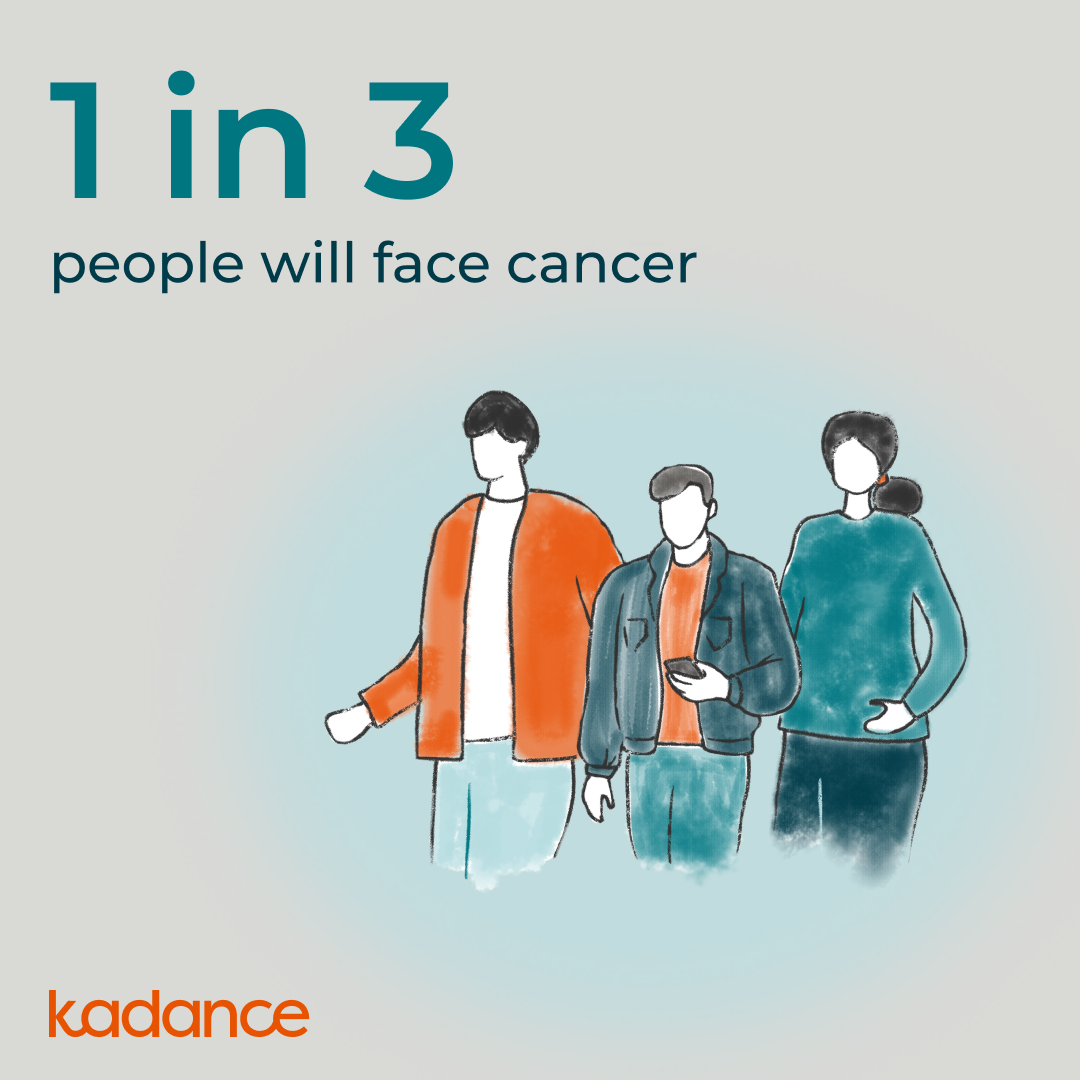Cancer touches far more lives than many people realize. In 2025, the American Cancer Society projects more than 2,041,000 new cancer cases in the United States. That’s over 5,500 new diagnoses every single day.
Over a lifetime, nearly 1 in 3 adults will be diagnosed with invasive cancer. For men, the lifetime risk is 39.9%; for women, it’s 39.0%. These figures mean almost everyone will be connected to cancer in some way, through personal experience or that of a friend, colleague, or loved one.
Who Is Most at Risk?
Cancer can develop at any age, but 88% of diagnoses occur in people aged 50 or older. Age, however, is not the only factor. Certain cancers are on the rise in younger populations, especially colorectal cancer, which is increasing among adults under 55 and is often diagnosed at later stages.
The most common cancers expected in 2025 are:
- Breast – 319,750 new cases (women and men)
- Prostate – 313,780 new cases
- Lung and bronchus – 226,650 new cases
- Colorectal – 154,270 new cases
Together, these account for nearly half of all cancer diagnoses.
The Human Cost
Cancer remains the second leading cause of death in the U.S. More than 618,000 Americans are expected to die from the disease in 2025. This is about 1,700 each day. Lung cancer alone will account for 20% of all cancer deaths.
While overall cancer death rates have dropped by 34% since 1991, translating to 4.5 million fewer deaths, progress has not been equal for all populations. Disparities in early detection and access to treatment continue to affect outcomes. Kadance aims to help close these gaps by providing access to advanced diagnostics, personalized guidance, and ongoing support—resources that can make a difference no matter their background or situation.
The Best Time to Act Is Before a Diagnosis
While no one can eliminate their cancer risk, there are steps you can take to identify risks earlier and prepare for the future. Kadance helps you:
- Understand inherited cancer risks with advanced genetic testing.
- Avoid harmful drug reactions, including those that can occur with cancer treatments, through ongoing genetically-based medication optimization reviews.
These insights allow you and your doctor to make informed choices early, improve preventive care, and ensure you’re better prepared should cancer ever become part of your life.
Kadance: Support When You Need It Most
While prevention and screening are critical, many people will still face a diagnosis. That’s where Kadance steps in. If you are diagnosed with cancer, your personal Oncology Nurse Navigator guides you through the healthcare system, coordinates precision diagnostic testing, and facilitates communication between your oncologist and Kadance’s team of molecular oncology experts.
Even after treatment, Kadance offers continued access to services, including DNA-based recurrence monitoring to watch for signs of cancer returning, so you always know where you stand.
Statistics are from:
American Cancer Society. (2025). Cancer facts & figures 2025. American Cancer Society. Accessed August 11, 2025. https://www.cancer.org/content/dam/cancer-org/research/cancer-facts-and-statistics/annual-cancer-facts-and-figures/2025/2025-cancer-facts-and-figures-acs.pdf.
.svg)

%20(1).png)
.jpg)
.jpg)